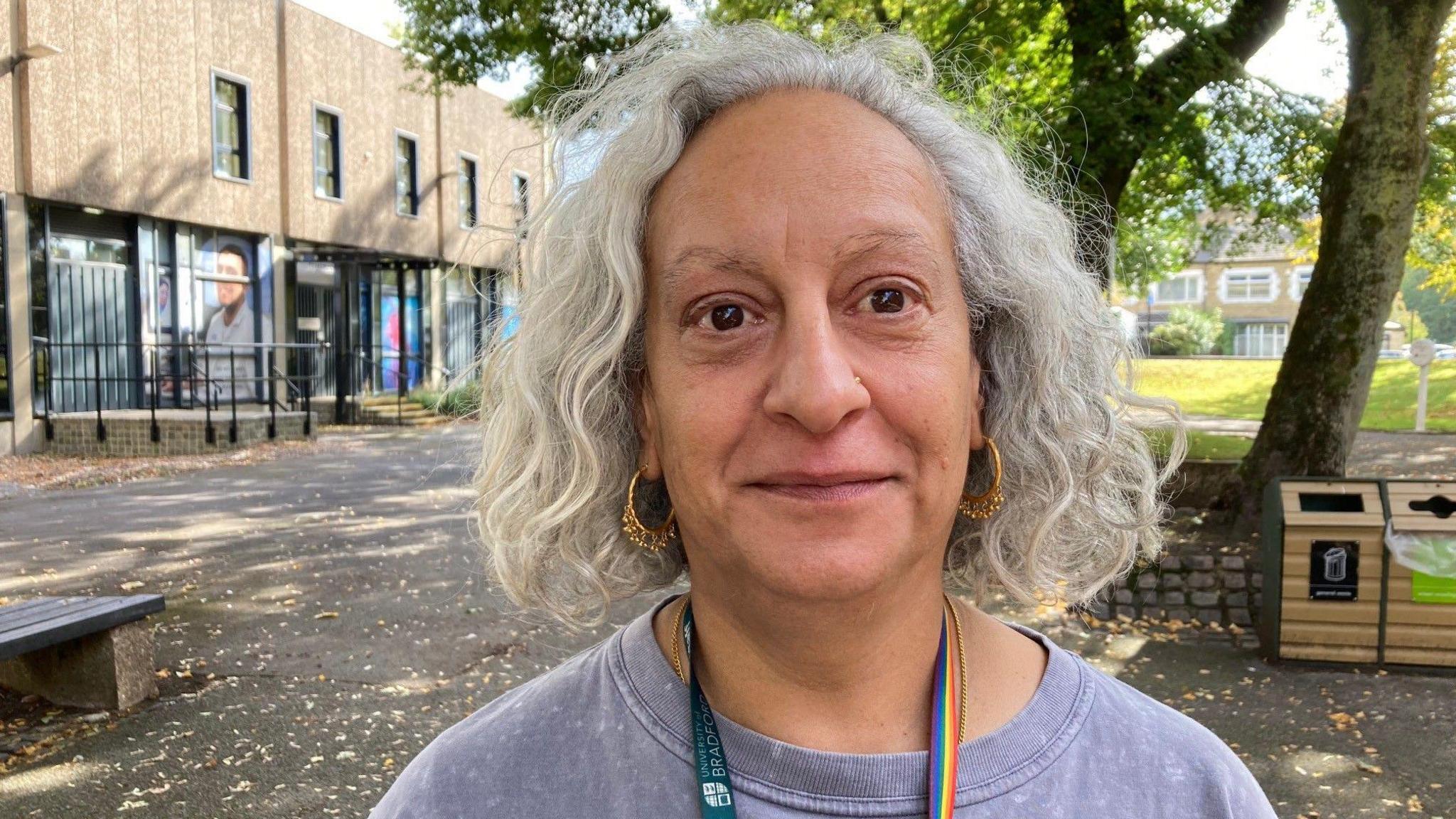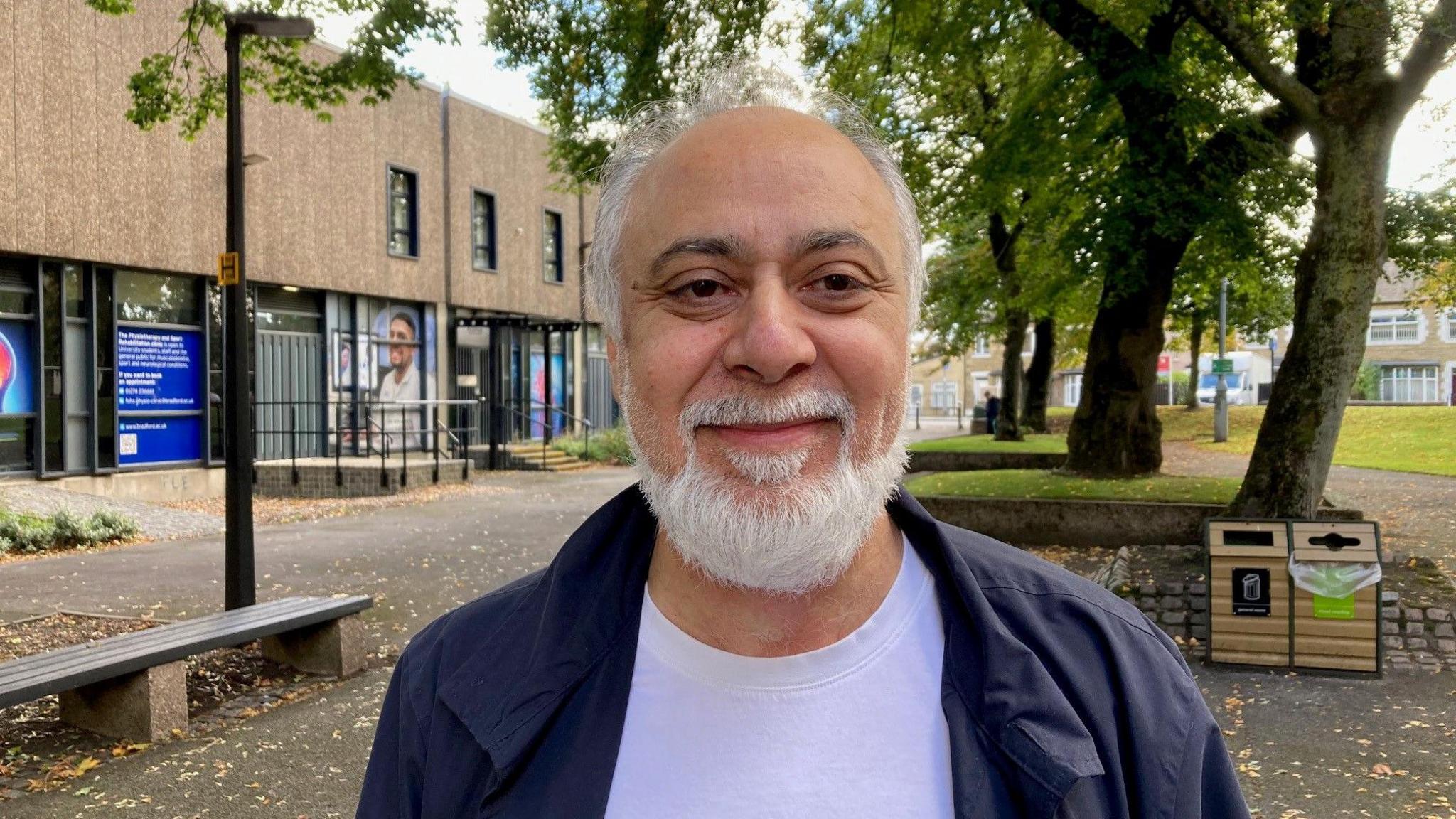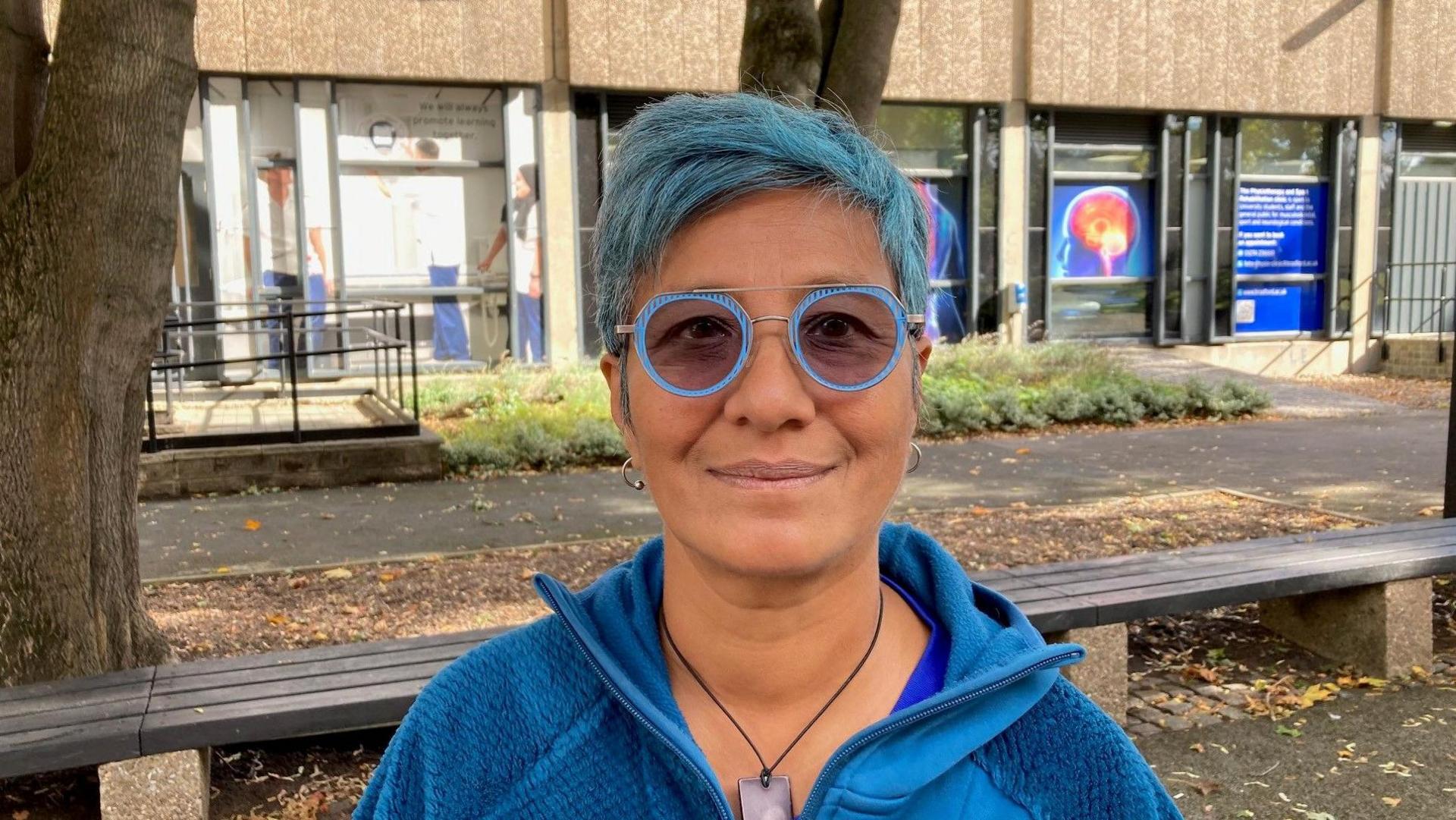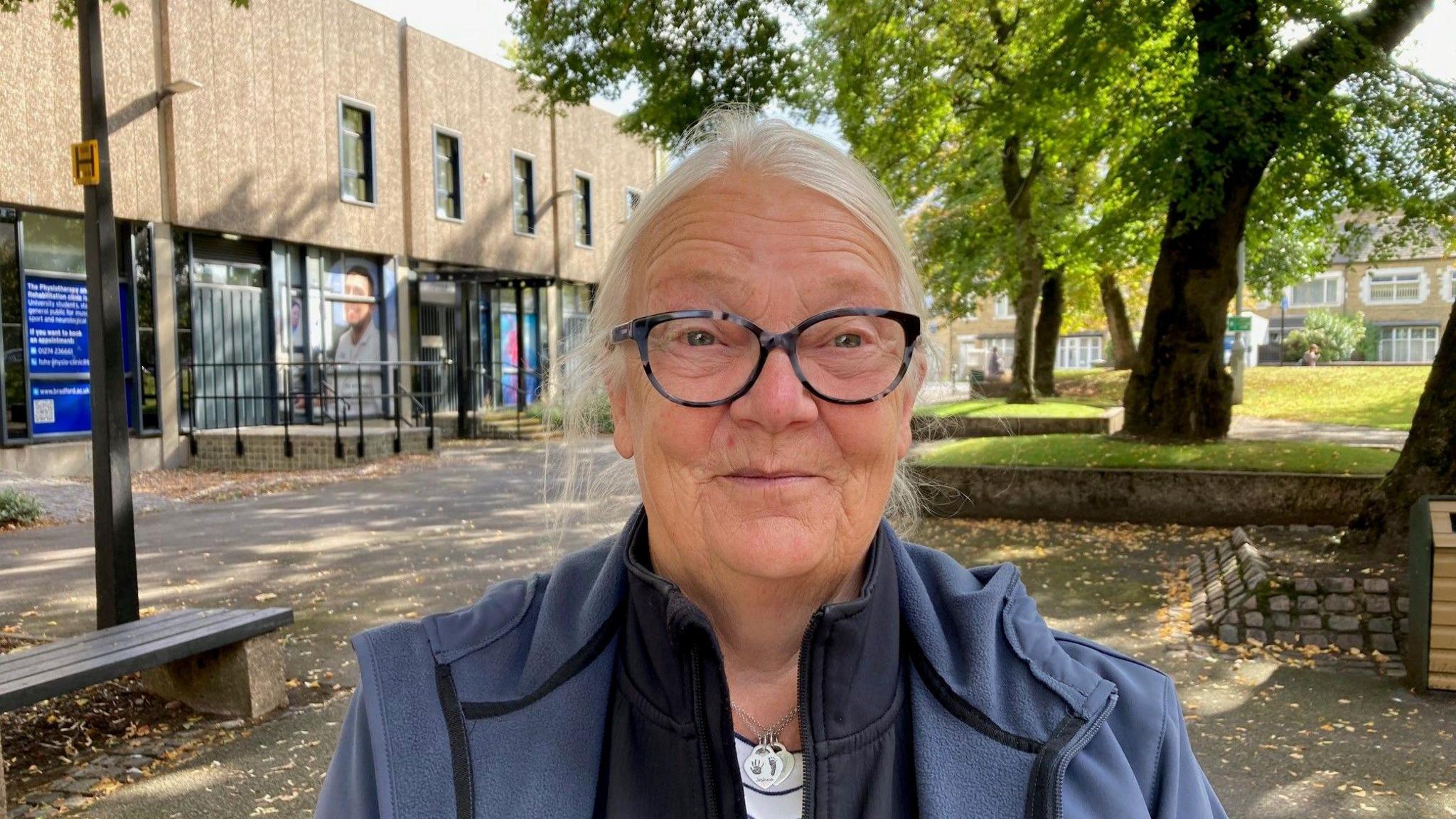Migrant families' memories of being 'bussed out' to school

Dr Shabina Aslam was 'bussed out' from her home in Manningham as a child
- Published
Between 1965 and 1980, a generation of children waited for the bus that would take them to school in the morning - confused about why they were being sent to be educated miles from their homes.
The policy of "bussing out" the sons and daughters of immigrant families to improve the racial mix of classrooms was prevalent in Bradford neighbourhoods such as Manningham.
No school was allowed to have more than 30% of its roll made up of pupils from ethnic minority communities, meaning children were distributed between areas.
The policy was eventually scrapped and deemed to be discriminatory, but many of those affected still have clear memories of having to go to school on the other side of the city.

Tariq Ali Aslam said the experience had shaped the person he has become
Dr Shabina Aslam went on to have a successful career in the arts, and the 62-year-old has created the immersive exhibition Bussing Out, which uses the testimonies of 21 people with experiences like her own. It will go on a national tour.
She arrived in Bradford as the child of south Asian parents who had settled in Kenya, where she was born. She spoke English, Punjabi and Swahili.
Aged seven, she was assigned to a special bus that took her to school in Bolton Woods, a mainly white area. Her family lived in Manningham.
"We should have been treated with a bit more love and respect, just due to the fact that we were children," she remembered.
"It was a very odd experience. None of the white children were brought back into the inner-city areas, which would have helped assimilation."
Dr Aslam is now the artistic director of Theatre in the Mill at the University of Bradford.
"It's a hidden history and I'd like it not to be forgotten. The places we're visiting (on the tour), the policy did also occur.
"We hope people who were 'bussed', who would now be in their fifties up to their eighties, will come forward and recount some of their experiences."
Tariq Ali Aslam, now 60, was another Manningham child who had to leave the suburb early in the morning to go to school elsewhere.
"I had to jump on a bus with a particular sign on it - ours was a red and white diamond.
"So we'd jump on this bus and we'd go to a school on the other side of Bradford.
"The bus was basically Asian and Afro-Caribbean children. We'd often arrive late for assembly."
Mr Aslam, who is now the director of a flooring company, said the experience of being "bussed out" had shaped his life.
He said: "There are positives and negatives to it.
"I think I am the person I am because I had to - for want of a better word - endure that, and that's what made me what I am."

Norrina Rashid felt the system could have been better
Retired youth worker Norrina Rashid, now 60, ended up working for Bradford Council for 37 years.
She said: "I was born in Bradford and we lived in Manningham next to Bradford City's football ground.
"But at the age of five me and four of my siblings got bussed out.
"We used to walk up to Green Lane and there would be hundreds of kids there.
"And we'd get bussed all around the Eccleshill area.
"I'd no idea at the time why I'd been bussed out. Later I found out that they were trying to make schools with a mixture of kids."
Ms Rashid recalled that the Manningham schools had white British pupils as well as children from Caribbean, Pakistani, Indian, Malay and Polish communities. Their parents were part of the first major wave of post-war migration from the colonies.
"So we were quite happy in our little place with a mixture of different people.
"What they really should have done was get some of the kids from Ravenscliffe to be bussed out to us!"

Jean Lonsdale's first experience as a teacher was with children from migrant families
Jean Lonsdale began her teaching career in the late 1960s when she was 21 and worked with children affected by the policy.
She was sent to a primary school that had started classes for youngsters from immigrant families.
"I remember being very surprised. There were supposed to be children with no English. I had one boy from Sri Lanka who spoke better English than me.
"I didn't really understand then that they'd been bussed in.
"It was my role to teach the children English and we had a headteacher who was a real out-and-out racist, and he would segregate us at every opportunity."
The 77-year-old is now retired but has remained in touch with many of her former pupils.
She said: "I think the children were very traumatised. Some had come straight from India and Pakistan.
"To be honest I'd been brought up in a white area, and this was a new experience for me and I loved it.
"The children were happy in the classroom when we were working together, but in the playground they weren't because they were ostracised."
Bussing Out goes to Rotherham in November, then Halifax in January, Blackburn in February, Luton in April, Southall in summer 2026 and Bristol in 2027.
Listen to highlights from West Yorkshire on BBC Sounds, catch up with the latest episode of Look North.
Get in touch
Tell us which stories we should cover in Yorkshire
Related topics
- Published30 January 2017

- Published11 March 2016